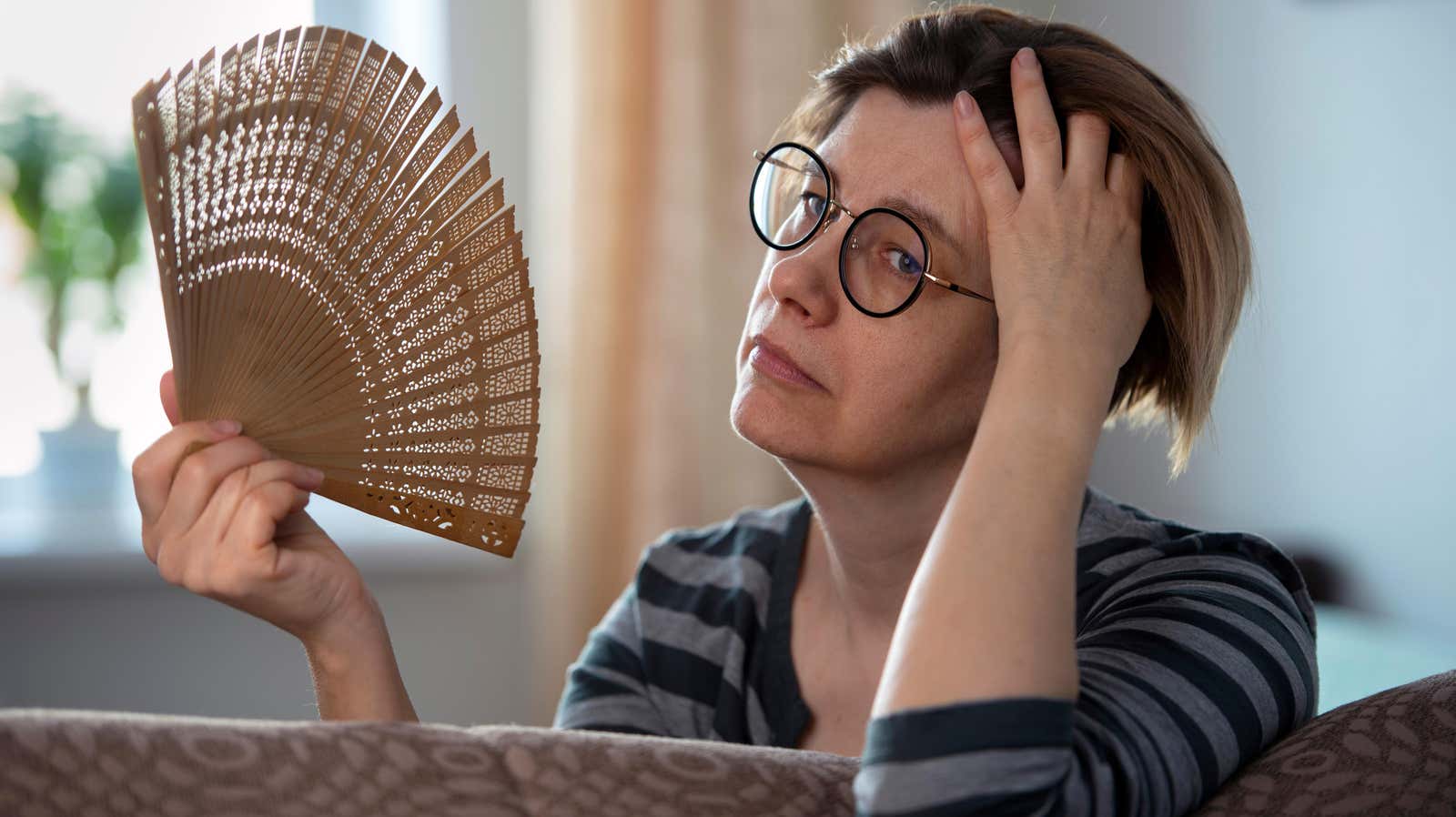Subtle (but Serious) Symptoms of Menopause

Generally speaking, menopause, which is defined as a full 12 months without a period , can occur at any time between the ages of 30 and 50, with an average age of 52 . During the period of time leading up to menopause, which is known as perimenopause , a number of changes can occur in the body, with this transitional period lasting an average of four years. Even after menopause is over, you are still not done, as symptoms can persist for years after that.
During this whole menopause process, one of the main changes is the decrease in estrogen levels – it will fluctuate in the earlier stages and then gradually decrease. “Menopause is the other side of puberty,” says Erin Manning, a gynecologist at the Houston Methodist Hospital.
This drop in hormone levels causes a range of symptoms, ranging from hot flashes and night sweats to mood changes and an increased risk of osteoporosis. “If you think about some of the mood symptoms that accompany puberty, some of them come along with the perimenopausal transition,” Manning said.
Symptoms of menopause that are rarely talked about
In addition to the discomfort of hot flashes and night sweats, menopause also brings with it a host of other annoying symptoms , including vaginal dryness or itching, pain during intercourse, hair loss, dry mouth, insomnia, and cognitive changes such as brain fog . or inability to concentrate. In the years leading up to menopause, periods can become either very irregular or unusually heavy.
Many women also struggle with weight gain, which is usually due to muscle loss, which is known to slow down metabolism . Menopause can also be accompanied by a range of mood changes and an increased risk of anxiety and depression. “Weight gain and mood changes are the things that are usually the least talked about and can be the most problematic,” Manning said.
Serious menopause symptoms that are often overlooked
Hot flashes and night sweats, although annoying, do not seriously affect your health. However, lowering your estrogen levels can also make you more vulnerable to some serious health conditions, including an increased risk of osteoporosis or a risk of developing heart disease .
In both osteoporosis and heart disease, estrogen plays a protective role. “When estrogen levels drop, the risk of a heart attack goes up,” said Michael Adler, an ob/gyn at UTHealth Houston and Memorial Hermann Hospital.
Menopause also occurs when bone loss begins to accelerate , which can lead to osteoporosis. “You don’t see too many premenopausal women with osteoporosis,” Adler said. To compensate for this loss of bone mass, it is very important to perform regular weight-bearing exercises , such as strength training, to help strengthen bones.
Don’t skip your annual health checkups
Once menopause is over, it can be tempting to skip your annual OB/GYN visit. “Sometimes my patients neglect themselves,” Adler said. However, skipping the annual well inspection means “we may be missing out on some dangerous stuff,” Adler said. These dangerous things can include cervical cancer, breast cancer, colon cancer, or early stages of bone loss. “We want people to live long and healthy lives,” Adler said.